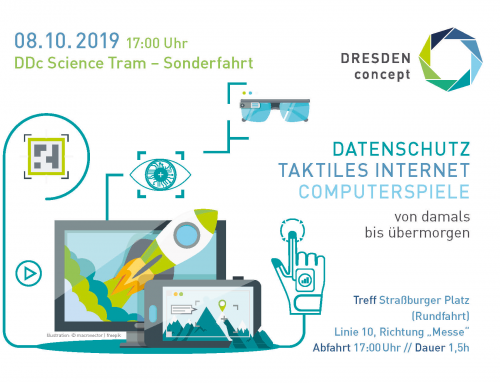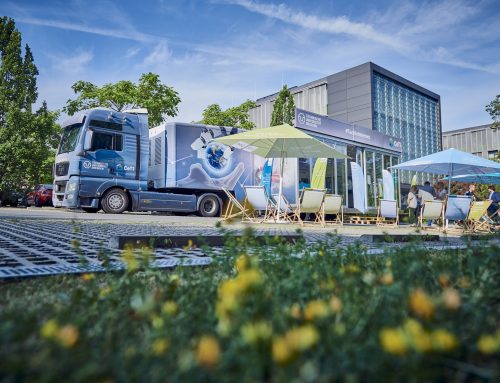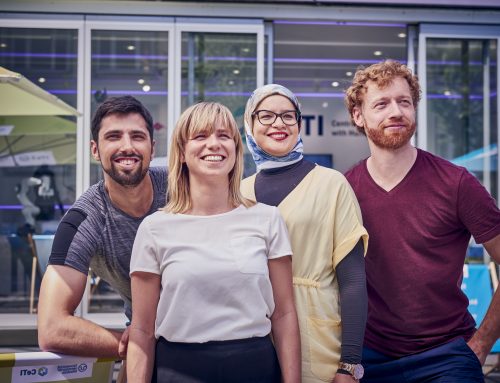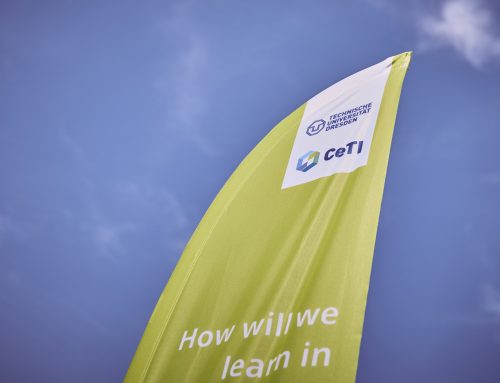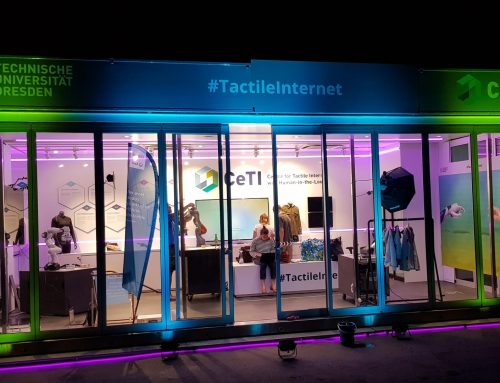Due to the COVID 19 pandemic, CeTI has decided to hold this year’s CeTI Summer School as an internal event. The motto of the CeTI Summer School 2020 is “Tactile Internet for Everyone”. This year, the focus will be on interdisciplinary cooperation in the CeTI Cluster of Excellence. We want to bring together scientists from our diverse disciplines and give them deeper insights into the research work of others. Through a diverse range of workshops with a focus on interdisciplinary science communication, innovation and transfer, the CeTI Summer School 2020 aims to strengthen internal communication. Through events such as the Speed Science Method and the Online Town, we want to enable scientists to get to know each other better and develop synergies outside their everyday professional work. The CeTI Summer School 2020 is complemented by exciting lectures by outstanding international speakers.
AGENDA:
Workshop Session I
Basics of Science Communication
Nationales Institut für Wissenschaftskommunikation
Speaker: Dr. Ulrike Brandt-Bohne, Richard Fuchs
Researchers play a central role in communicating science to the public, alongside professional communicators and journalists. Scientists write articles and opinion pieces for news media, give interviews, are active on social media, give presentations at public events, and much more. To successfully reach broader audiences, it is important to focus on clear and comprehensible core messages.
This introductory seminar is designed to raise awareness of the importance to communicate science. Participants learn the basic principles of science communication. They hear about the interaction of academia and the news media. Using a simple framework, participants discover the core aspects of good science communication and identify the reasons why science communication is important.
In particular, these topics will be covered during this one-day seminar:
• The main actors and changes in the science communication landscape
• The NaWik arrow as a framework for successful science communication
• Identifying stakeholders and segmenting target audiences
• Getting your message across clearly with your own core message
• The factors underlying trust in science – and in scientists
The online seminar includes four 90min workshops, which are offered via Zoom. Maximum capacity for the online seminar is 12 participants.
Further information: https://www.nawik.de/seminare/seminars-in-english/
Workshop Session II
Innovation Management
Centre for Leading Innovation and Cooperation
Speaker: Prof. Dr. Claudia Lehmann, Dr. Sandra Dijk
CLIC offers two interactive lectures and a workshop as part of the CeTI Summer School. The two lectures will be held online and the workshop in the premises of the TU Dresden. The three events will last about 3 x 2.0 hours (including breaks).
The main topic of the two lectures is the introduction as well as the deepening insight into the field of innovation management. The specific focus will be on transfer formats from research to industry and the exploitation of ideas with the help of suitable business models. In particular, the comprehensive project experience of the CLIC will be brought to bear and communicated to the participants in the form of best practices and moderated discussion contributions.
The workshop, which will take place on site, will focus on the topic of gamification. It will focus on the practical application of several games that can be used to support the innovation process. Among other things, self-developed games will be tested with the aim of making them applicable in the participants’ everyday work.
Further information: http://clicresearch.org/de/
Workshop Session III
CeTI meets ROS
Speaker: Prof. Uwe Aßmann, Johannes Mey, Sebastian Ebert
The Robot Operating System (ROS) is designed to enable developers of robotic applications to easily create robotic software components and controllers by providing both a component and communication model and many helpful components for motion planning and sensor processing.
This session gives a brief introduction to software engineering for robotics, human-robot collaboration (cobotics) and ROS.
In a practical exercise you will control a (simulated) robot arm (Franka Emika Panda) using the ROS infrastructure.
Additionally, we show how external components and systems can be connected to the robot, enabling you to easily create impressive robotic and cobotic case studies for your research.
This workshop will be offered online.
Workshop Session IV
Virtual Reality
Speaker: Prof. Dr. Stefan Gumhold
Alternating between short lecture parts and hands on exercises the participants will learn how to implement highly immersive VR applications. The workshop introduces the basics on tracking & calibration, real-time rendering, intersection computations, controller based interaction, and physical based animation. The learned concepts are combined into simple immersive VR applications.
Maximum capacity for the workshop is 15 participants. The workshop will take place on site.
Workshop Session V
Machine Learning
Speaker: Dr. Sebastian Bodenstedt
Sebastian will give an introduction into machine learning.
Lecture Session I
Cognitive Systems
Speaker: Prof. Dr. Tanja Schultz
Tanja Schultz was appointed Professor of Cognitive Systems at FB3 in April 2015. She passed the state examination in mathematics and sports in 1989 before turning to computer science. The diploma was followed by a doctorate in computer science at the University of Karlsruhe. This was followed by six years as a research scientist and professor at Carnegie Mellon in Pittsburgh, PA, USA. In 2007 she founded the Cognitive Systems Lab (CSL) at the Karlsruhe Institute of Technology. Her research focuses on cognitive technical systems for human-machine interaction based on speech and non-verbal communication signals. To this end, she combines machine learning methods with innovations in biosignal processing, for example in “silent speech communication” and “airwriting”. In 2012 she received the Alcatel-Lucent Research Prize for her overall work in the field of “Man and Technology in Communication Systems”. At the University of Bremen, the computer scientist set up the Biosignals Laboratory, in which students can work together with researchers from the CSL@Uni-Bremen to create human-centred cognitive communication systems.
The lecture will be given online.
Further information: https://www.uni-bremen.de/csl/team/mitarbeiter/prof-dr-ing-tanja-schultz
Lecture Session II
Bayesian Brain and Multisensory Perception
Speaker: Prof. Uta Noppeney
Uta Noppeney studied medicine and philosophy at the University of Freiburg (Germany), University College London (UK) and Johns Hopkins University (Baltimore, USA). She received a degree in medicine (1997, Freiburg University, Germany), a doctorate in medicine (1998, Freiburg University) and a PhD in neuroscience (2004, University College London, UK). After training in neurology at the University Hospital in Aachen, she conducted neuroscience research at the Wellcome Trust Centre for Neuroimaging, University College London (UK). In 2005, she became research group leader at the Max Planck Institute for Biological Cybernetics in Tübingen (Germany). In 2011, she was appointed Professor of Computational Neuroscience and director of the Computational Neuroscience and Cognitive Robotics Centre at the University of Birmingham.
The lecture will be given online.
Further information: https://www.ru.nl/english/people/noppeney-u/
Lecture Session III
Bayesian Inference and Neural Information Processing
Speaker: Prof. Alexandre Pouget
Alexandre Pouget is currently a full professor in the Neuroscience Center at the University of Geneva, where he leads the computational cognitive neuroscience laboratory. His research focuses on theories of representation and computation in neural circuits with a strong emphasis on neural theories of probabilistic inference. According to this approach, knowledge in the brain takes the form of probability distributions and new knowledge is acquired via probabilistic inferences. This allows robust computations in the presence of uncertainty, a situation that arises in almost all real-life computations. He is currently applying this framework to a wide range of topics including olfactory processing, spatial representations, sensory motor transformations, multisensory integration, perceptual learning, attentional control, decision making, causal reasoning and, more recently, simple arithmetic.
The lecture will be given online.
Further information: https://www.unige.ch/medecine/neuf/en/research/grecherche/alexandre-pouget/
Lecture Session IV
Softrobotics, Microrobotics, and Robotics in the context of surgery
Speaker: Prof. Franziska Mathis-Ullrich
Franziska Mathis-Ullrich is Assistant Professor at the of the Institute for Anthropomatics and Robotics (IAR) at Karlsruhe Institute of Technology (KIT) and Director of the Medical Robotics Group since 2019. She started her technological journey by pursuing her B.Sc. in mechanical engineering and subsequently consolidated her robotics education with a M.Sc. in robotics, systems, and control at ETH Zurich in Switzerland. During that time, she gained complementary practical experience during several academic and industrial stays abroad at the Australian Center for Field Robotics (Australia), ABB Corporate Research (Sweden), MTU Maintenance (China), and ABB (Switzerland).
In 2016, Franziska Mathis-Ullrich completed her doctorate at the Multi-Scale Robotics Lab (MSRL) at ETH Zurich. Her research focused on the development of several tethered and untethered microrobotic devices to assist in ophthalmic surgery. Subsequently (2016-2018), Franziska worked as a Post-doctoral Fellow at the Multi-Scale Robotics Lab (MSRL) at ETH Zurich and as CEO and co-founder of the startup company Ophthorobotics, where she was highly passionate about the development and commercialization of the worldwide first system that automatically injects medication into the eye for the safe and efficient treatment of chronic ocular diseases. Franziska’s research interests focus on minimally-invasive medical robots, especially utilizing softrobotic systems, as well as the translation of medical processes towards robot- and KI-assisted surgeries.
The lecture will be given online.
Further information: https://www.ipr.kit.edu/english/staff_3343.php
Online-Town
Unfortunately, we cannot come together this year as we actually wanted to. Nevertheless, we want to enable interaction and communication and enable CeTI scientists to exchange ideas with each other in a relaxed atmosphere. With the Online-Town we want to make this exchange possible for you. There is no fixed agenda for this. Drop by, talk about your research and the lectures/workshops of the Summer School.
Speed Science Method
The Speed Science Method (which is actually called Speed Dating Method) enables the participants to have time-limited conversations with different partners about the same topic or the same question/problem due to a seating arrangement in two rows of chairs and due to shifts in position. In this way, several different opinions can be discussed very quickly and in a concentrated manner in a personal exchange of ideas, which would not be possible in a plenary session. We want to try out this method with you and hope that you can find out more about the research of the others.
We can imagine speaking about the following things with you:
• Your research in a nutshell
• Your wishes/requirements for successful research
• Where do you need help?
• What kind of collaborations do you wish for?
You can bring up to 3 sheets of paper with illustrations and graphics to explain your research to the others. The method will be moderated by the Programme Office.
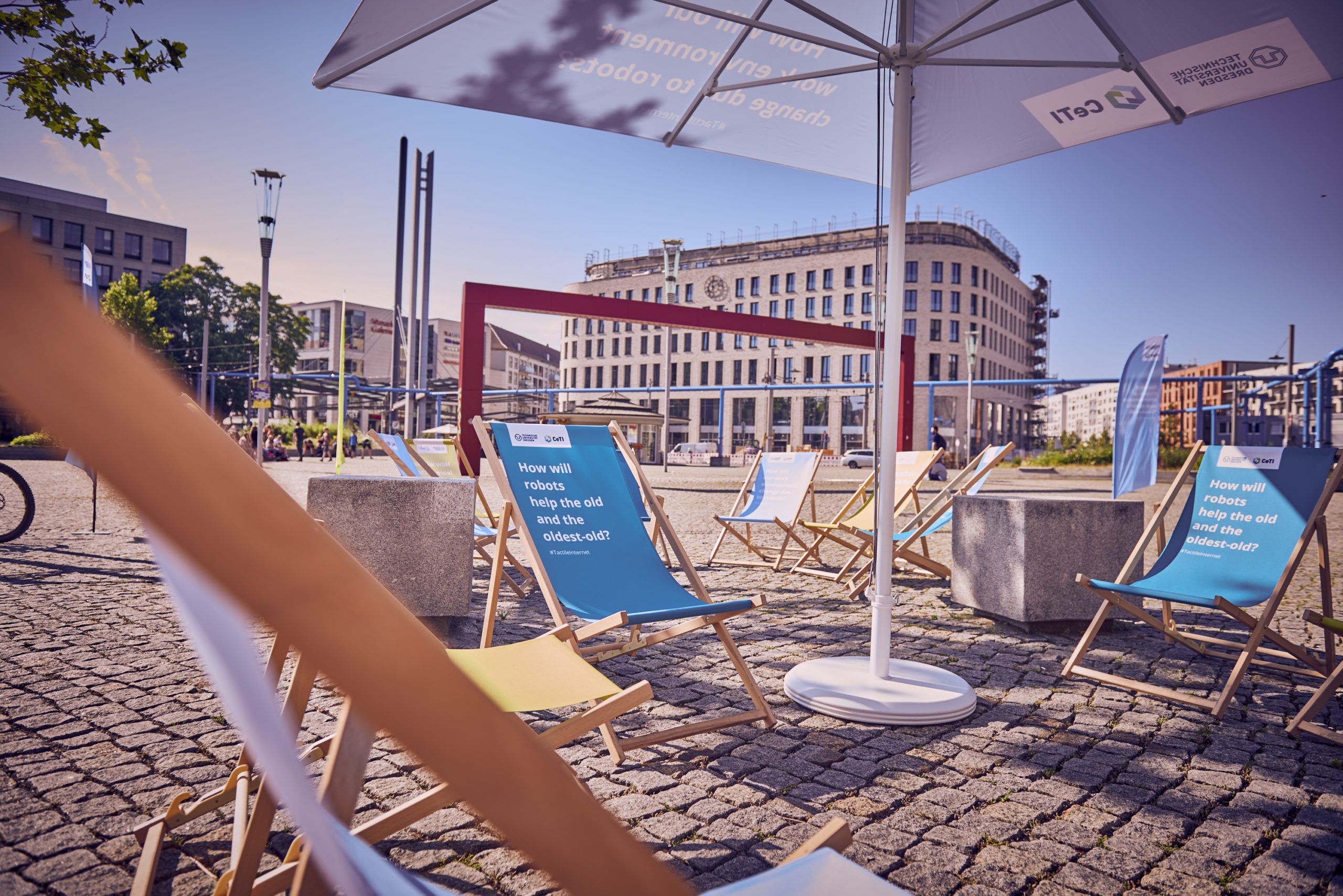
Location
Technische Universität Dresden
Georg-Schumann-Str. 11
Wing D, 1st floor, room I88
01187 Dresden
Germany
The agenda can be downloaded here.














